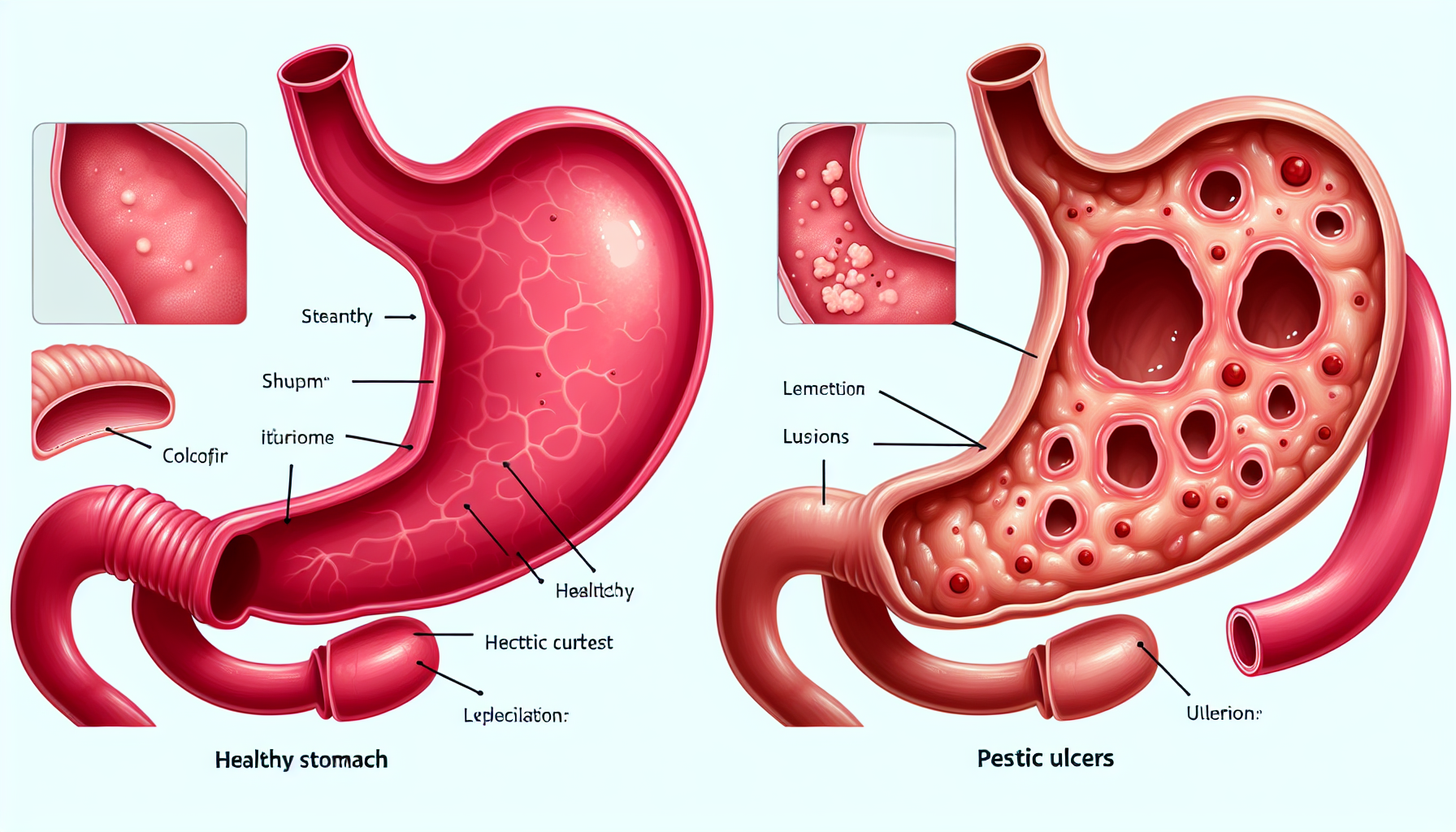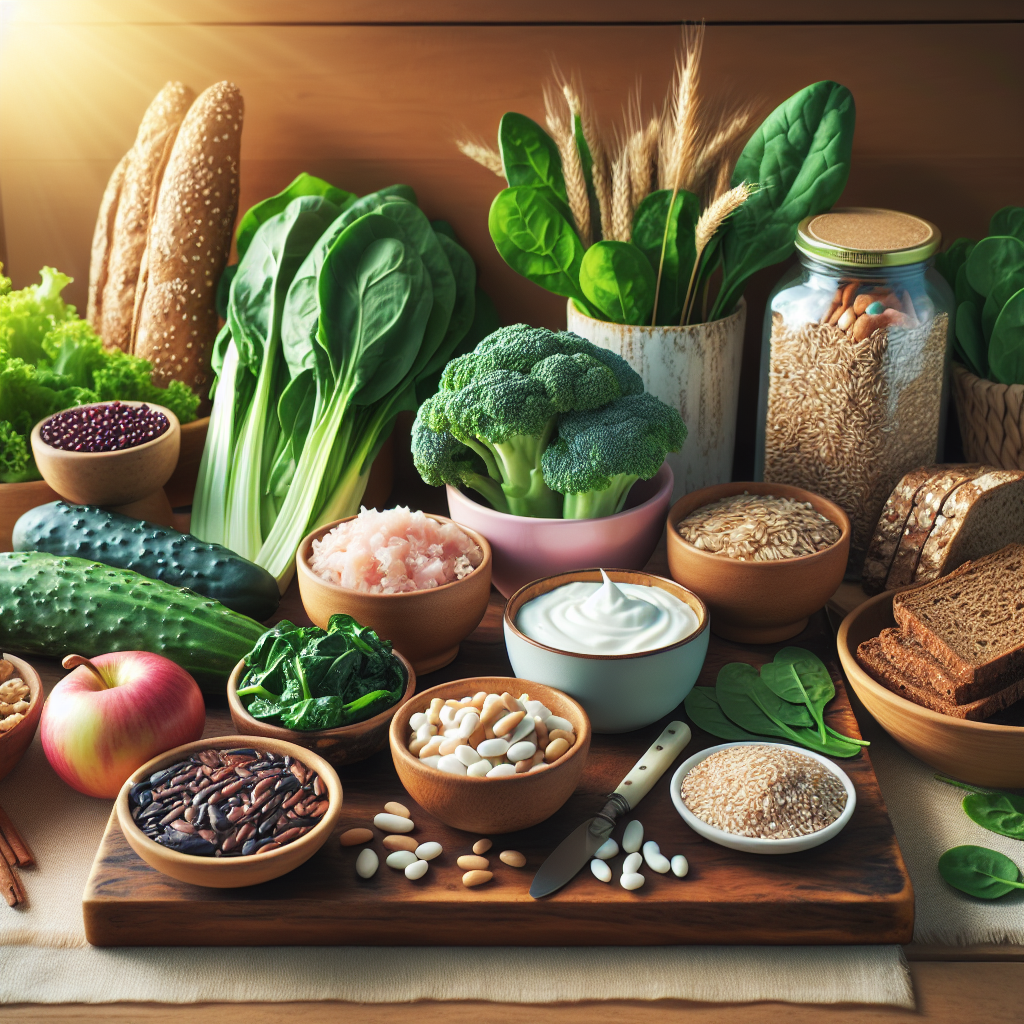Peptic ulcer disease (PUD) represents a significant health concern, affecting millions of people worldwide. Characterized by painful sores or ulcers in the lining of the stomach or the first part of the small intestine, PUD can lead to severe complications if left untreated. The role of diet in the development and management of peptic ulcers has been a subject of continuous research and debate, and understanding the dietary factors that may contribute to or alleviate this condition is crucial for effective management.
The Impact of Diet on Digestive Health
Digestive health is foundational to overall well-being, and what we eat significantly influences the health of our gastrointestinal system. A balanced diet rich in nutrients supports the structure and function of the digestive tract and can help prevent various digestive disorders, including peptic ulcers. For comprehensive insights on maintaining digestive health, AvixHealth’s article on digestive health serves as an indispensable resource.
Understanding Peptic Ulcers
Peptic ulcers occur when the protective mucous lining of the stomach or duodenum is compromised, allowing the acidic digestive juices to erode the tissue beneath. Several factors contribute to the formation of ulcers, including the Helicobacter pylori bacteria, prolonged use of nonsteroidal anti-inflammatory drugs (NSAIDs), and excessive acid production.
While stress and spicy foods were once thought to be primary causes of ulcers, we now know that these factors only exacerbate existing conditions. However, this doesn’t diminish the role of diet in managing PUD. Certain foods and beverages might irritate the ulcer or interfere with the healing process, while others may promote recovery.
Dietary Adjustments for Ulcer Management
One of the critical areas in managing PUD is identifying and avoiding foods that can irritate the stomach lining. Foods and beverages that are high in acidity, such as citrus fruits and juices, tomato products, and coffee, can increase stomach acid production and irritation. Similarly, the consumption of caffeine has been linked to digestive health challenges, including exacerbation of PUD symptoms.
In contrast, incorporating foods with mucilaginous properties, like oatmeal and aloe vera, may help in creating a protective layer on the lining of the stomach. Additionally, a diet high in fiber can promote digestive health and potentially reduce the risk of ulcer development. The connection between high-fiber diets and colon health is well-documented, suggesting a broader impact on the gastrointestinal system.
Herbal Remedies and Their Role in Ulcer Management
Herbal remedies have been used for centuries to treat various ailments, including digestive issues. For instance, licorice root has a soothing effect and may help in repairing stomach lining. Combating digestive health issues with herbal remedies provides further insight into how natural supplements can complement a diet aimed at managing PUD.
The Role of Probiotics in Ulcer Healing
Probiotics are live microorganisms that confer health benefits to the host when consumed in adequate amounts. The inclusion of probiotic-rich foods like yogurt, kefir, and fermented vegetables can support gut health by restoring the balance of good bacteria, which may be beneficial for those with peptic ulcers, especially when caused by H. pylori infection.
Lifestyle Modifications to Support Ulcer Healing
Beyond dietary changes, lifestyle modifications play a pivotal role in managing peptic ulcer disease. Smoking cessation, reducing alcohol intake, and managing stress through techniques like yoga or meditation can significantly impact the healing process. The role of yoga in improving digestive function exemplifies how such practices can alleviate stress, which is known to affect gut health adversely.
Advanced Dietary Strategies
For some individuals, more tailored dietary approaches may be necessary. The Low FODMAP diet, often recommended for irritable bowel syndrome, may also benefit those with peptic ulcers by reducing the intake of fermentable carbohydrates that can cause irritation. More information on this can be found in the article discussing the Low FODMAP Diet and its benefits for Irritable Bowel Syndrome.
External Resources for Further Reading
While the information provided here offers a comprehensive overview, further reading can deepen understanding and provide specific guidance:
- The American College of Gastroenterology provides guidelines and patient resources on managing various gastrointestinal conditions, including peptic ulcers.
- The International Foundation for Gastrointestinal Disorders offers detailed information on digestive health, with a section dedicated to peptic ulcer disease.
- The National Institute of Diabetes and Digestive and Kidney Diseases includes research-based information on the causes, treatment, and prevention of peptic ulcers.
Conclusion
Understanding the role of diet in peptic ulcer disease is crucial for effective management and healing. A balanced diet, possibly supplemented with specific foods and herbal remedies, combined with a healthy lifestyle, can go a long way in preventing and managing PUD. For those affected, consultation with a healthcare provider is essential for a tailored treatment plan. Always consider combining professional medical advice with the wealth of knowledge available through dedicated health resources to achieve the best outcome in managing peptic ulcer disease.



